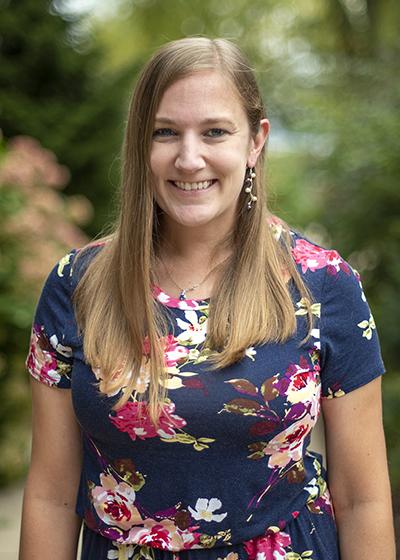- Title: Assistant Teaching Professor
- Department: John A. Dutton Institute for Teaching and Learning Excellence
ABOUT
Q: What are your current research interests?
Most of my work is related to local scale solutions to global scale problems, specifically looking at the role of local municipal governments in achieving climate solutions.
Q: What lead you to your specific field and when did you know you wanted to pursue a career in your specific field?
The impacts of climate change affect us locally. The good news and the bad news about climate change is that it touches virtually everything we already care about. By connecting with our community on the issues that they already value, we can build consensus to address these challenges and disentangle solutions from the political infighting so often associated with climate change itself.
Q: What do you hope students take with them from your classes?
An appreciation of the interconnected nature of our choices and the environment around us, an ability to think critically about nuanced challenges and creating positions based on scientific evidence, an enhanced ability to communicate complicated science to a broad audience.
STUDENT RECRUITMENT
Q: Why should students choose a major in your field?
Even if our national and international efforts to reduce climate change suddenly become infinitely more effective and fast moving, there is still so much work to be done to make our existence on this planet a more sustainable one. There’s room for all of us in this field, and we need to carry what we learn to all other aspects of our lives.
Q: What are some of the career opportunities for students who a choose major in your field?
Students graduating with a BS or BA in Energy and Sustainability Policy are prepared to work at the intersection of science and policy – ensuring that we’re using the best available science to make sound policy decisions. We have many students who go on to work in various governmental agency capacities or who lead sustainability efforts at a wide range of non-profit and private companies. You can choose your own adventure with our degree.
Q: What types of research or hands-on learning are available within your department?
The major I teach in (Energy and Sustainability Policy) is offered through World Campus. However, we don’t let distance limit our students from having engaging real world experiences! We’ve had students complete projects in service to University Park campus operations as well as informing and implementing our regional climate action and adaptation plan. Beyond that, we support students in engagement opportunities in their own communities, helping them network right where they are.
PERSONAL
Q: Did you go to college with the intention of getting the job you have now? If not, briefly explain how you came to the position you're in now at the University.
When I enrolled in college, I initially chose Creative Writing as my major. My first semester I had a class very much like Penn State’s GEOG 30N (Environment and Society in a Changing World) and I was hooked. I changed my major and while I perhaps didn’t have a good sense of what I wanted to do with my geography and environmental studies degrees, I knew I wanted to leave the world a better place than I found it. It was while working in the private sector on greenhouse gas emissions reductions projects that I had the opportunity to design, build, and teach my first World Campus course – and that path led me here.
Q: How do you like to spend your free time?
When I’m not spending time with my daughter, I really enjoy thrifting and stained glass (this is a relatively new hobby for me!). I’m still learning a lot about the basics of stained glass, but am quite proud of the pieces I’ve been able to produce so far and look forward to continuing to learn about this art form as I go.
Q: What professional accomplishments are you most proud of?
The work we’ve accomplished here in at the university and the Centre Region to reduce greenhouse gas emissions and prepare for the impacts of a changing climate. While larger scale government responses to this issue can be frustratingly slow and inadequate, working to make our community a better place to live is immensely rewarding and a great way to get to know your neighbors.
Q: If you could go back in time, what if anything would you do differently as a student?
I would be less afraid of failure. As an undergrad, I avoided classes I didn’t feel confident I could earn an A in – guarding my GPA for now seemingly arbitrary reasons. As a result, I didn’t challenge myself as much as I wish now that I would have.


